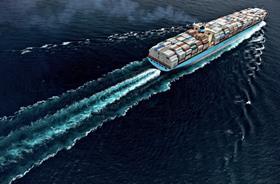
Maersk has highlighted the support it offers the Kenyan fresh produce business, among others, and has said it is looking to strengthen its position in the country.
Shipping over 30 per cent of Kenyan imports and 50 per cent of the country’s export volumes, the logistics giant said it played a key role in partnering with Kenyan businesses to help them grow and expand to other markets.
Maersk also pointed out that it was strengthening its organisation in Kenya to expand its landside offering, to further address customer needs.
'Ever since we started our operations in Kenya with the first vessel call in 1978, we have continuously developed solutions that respond to the needs of Kenyan importers and exporters, with specific focus on segments core to the Kenyan economy,' said Carl Lorenz, managing director, eastern Africa area at Maersk.
'We know these needs go beyond just ocean transportation, so we look at our customers’ supply chains holistically and our goal is to identify needs worth addressing and in so doing fostering long term relationships built on real two-way value,' he noted.
Around 90 per cent of all containerised avocado exports to Europe are moved with Maersk, which offers Kenyan exporters landside and ocean Controlled Atmosphere refrigerated solutions.
Maersk said that through its expertise in logistics, as well as in port operations through its terminal and port division APM Terminals, it was ready to support further development of Kenya’s maritime sector.
The company expressed interest in the Public Private Partnership framework for ports in Mombasa and Lamu, with a plan towards developing a regional maritime hub in Kenya and creating 1,000 direct and 4,000 indirect jobs as a result of the project.
'We strongly believe in the potential of Kenya’s businesses to reach customers in new markets, as well as to strengthen their presence in existing ones,' said David Skov, vice-president Africa and Middle East, APM Terminals. 'Facilitating those ambitions requires efficient supply chain solutions and infrastructure and we will continue to work with our partners to continuously develop those.'



